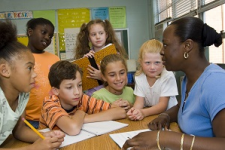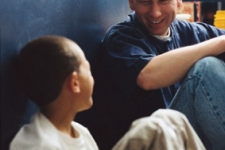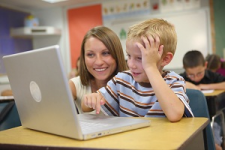How can I Facilitate Brainstorming in the Classroom?

A brainstorming session is a useful tool to generate ideas or find solutions to a problem. These sessions explore and expand a student’s ability to think critically and laterally. As students get actively involved, the sessions aid the process of learning and improve academic performance.
What are the benefits of brainstorming sessions?
Brainstorming in the […]
SELF-STUDY: Cognitive Skills – Understanding Learning Challenges (5 clock hours)
“When a task is given in school, why does one student take thirty minutes to complete it and another only eight minutes?”
The U.S. Department of Education, and others indicate thatweak cognitive skills are the source of over 80% of learning problems.
In this course you’ll come to understand the answer: […]
How can I use Teacher Learning Communities for Professional Development?

Teacher Learning Communities are groups of teachers who “continually inquire into their practice and, as a result, discover, create, and negotiate new meanings that improve their practice.”
The emphasis of these communities is on learning. Members identify goals, often concerns or issues emerging from within a classroom and discuss them to explore practical and […]
How do I Teach a Student with Autism who has Repetitive Behavior?

Most of the time, repetitive behaviors are attempts by a person’s sensory-motor system to develop control or protection from feeling overwhelmed. Some examples are:
Nick seems to be able to find a piece of string in any environment. Once he has it, he twists and twirls it between his fingers. He seems mesmerized by […]
How do I give Effective Feedback to Students?

Contrary to popular belief, the process of grading students is not idealy complete even after the assessments have been graded. Teachers need to take time to meet with students and talk about the assessment, to provide feedback to students and help them understand why the question was wrong or right.
We also want to […]
Why is it Important for Teachers to Understand their own Learning Style?

“Most Americans do not know what their strengths are. When you ask them, they look at you with a blank stare, or they respond in terms of subject knowledge, which is the wrong answer.” – Peter Drucker, Business Management Consultant
Educators are not the only people examining styles. According to a Gallup study, 80 […]
How do I Plan a Virtual Tour of a Museum?

Every student looks forward to class field trips, whether it is to an amusement park, a museum or even just to the park. A trip to the museum helps you make education exciting and allows you to sneak in information in an unsuspecting fun way. However, there are a lot of logistical and […]
Who are Twice Exceptional Students?

Twice exceptional students, those with giftedness and another dimension of diversity, are among the most underserved populations in schools today. Few school districts have screening procedures to identify them. Fewer still have special classes or programs to meet their needs.
Children who are twice exceptional struggle with the following:
to become proficient in English
come from […]
What is Backward Design in Education?

For many years, external and standardized testing molded design learning experiences that would bring students toward mastery of what was on associated tests. However, as teachers were not the architects of these tests, there was sometimes a disconnect between the tests and the reality of the educational terrain (relevance to student and meaningful […]
What should my Policy on Accepting Gifts from Students be?

Giving and receiving gifts can be gestures of kindness and support. We as teachers are professionals and must strive to discern the ethical aspects of gifts carefully and wisely.
Sometimes it is better to humbly accept a gift than to refuse it, especially if refusing would offend someone. Children thrill in giving hand-made drawings, cards […]



